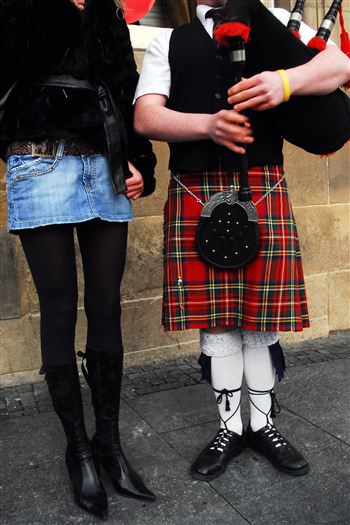
By Zoe Keown
ONE OF the first words that comes to mind when you think of the Scottish sporran is traditional.
But as an EU ban on the sale of seal skin comes into play, the traditional make up of this Highland accessory is about to change, and it is feared that this unique part of Scottish culture will be sent to the history books.
In a battle of tradition over morals, sales of the sporran are already slowing down as alternate versions made with rabbit skin, pony hide and even vegan sporrans – made with mock leather and faux fur – are set to fill the new gap in the market.
Duncan Chrisholm, an Inverness kiltmaker, and chairman of the Kiltmakers Association of Scotland, said: “It has affected sales as a lot of customers like the more traditional sporran.
“What will be on offer now a lot of the time are synthetic materials.
“They don’t look the part, they are not the same quality.
“A lot of the traditionalists will perhaps be put off wearing the kilt as they just don’t like the synthetic options available.
“The seal skin sporran looks nice, its good quality, has got good wearing and it is an adornment to the kilt outfit.”
Business concerns were also echoed by Iain Jackson, a partner in the Aberfeldy-based Kilt Sporran Company.
He said: “We have made sporran sales this month but it’s been much slower.
“We do expect an impact on the business with the quality of alternatives falling short of that of the seal skin product.”
Commenting on the new materials thought to be used he said: “Pony skin and cowhide are the closest and will most likely replace seal skin, while rabbit offers an alternative, albeit with a different look and feel.”
Despite its alternate materials, the vegan option is proving to be popular, as Tyne-side- based craftsman, Brian Woodward, who recently launched the worlds first range of vegan sporrans highlights.
He said: “Around 70 per cent our orders are from north of the Border, while the rest come from every corner of the globe.
“We have had inquiries from New Zealand, Iceland, Finland, the US, Canada and pretty much anywhere where there is a Scottish population.
“There is a significant majority of the Scottish community around the world who want to wear cruelty-free products when they are wearing their national dress.”
With thousands of ponies and horses slaughtered in Britain every year, kiltmakers say that pony skin is the most realistic option.
The EU ban, which was aimed at ending the cruel slaughtering of animals, came into force on 20 August.

